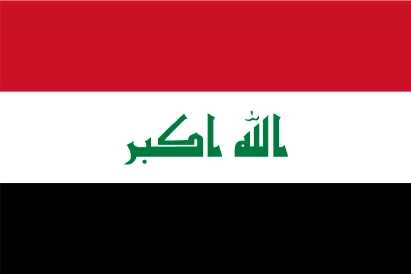Iraq Travel Guide
Discover Why You Should Visit Iraq
Why Visit Iraq?
Iraq is a land of immense historical significance, often referred to as the cradle of civilization. With ancient Mesopotamian ruins, revered religious sites, and rich cultural traditions, Iraq offers a deep and meaningful travel experience for those seeking to explore human history.
From the ruins of Babylon and Nineveh to the cultural richness of Baghdad and the spiritual centers of Karbala and Najaf, Iraq is slowly opening up to travelers interested in heritage, archaeology, and religious history.
Ideal for: History enthusiasts, cultural adventurers, religious pilgrims, and academic travelers.
Must-Know Facts
Capital/Major City: Baghdad
Language(s): Arabic and Kurdish
Currency: Iraqi Dinar (IQD)
Best Time to Visit: October to April for milder temperatures
Fun Fact: Iraq is home to the site of ancient Mesopotamia, where writing, the wheel, and early cities were first developed
Top Things to Do
Visit the ancient city of Babylon near Hillah
Explore Baghdad’s National Museum and historic sites along the Tigris River
See the holy shrines of Imam Ali in Najaf and Imam Hussein in Karbala
Discover the ruins of Hatra, a UNESCO World Heritage Site
Travel north to Erbil, a safe and vibrant city with an ancient citadel
Local Culture & Lifestyle
Iraqi culture is deeply rooted in hospitality, family values, and strong community ties. Traditional customs, music, poetry, and crafts are vital expressions of cultural identity.
Religion plays a central role in public and private life, with Islam being the predominant faith. Religious events and traditions are widely observed.
Social gatherings revolve around family meals, storytelling, and honoring guests with warmth and generosity.
Food & Drink Highlights
Street Food: Samoon bread sandwiches, falafel, kebabs, kubba (stuffed meat patties)
Restaurants: Offer masgouf (grilled river fish), biryani, dolma, and lamb stews
Drinks: Arabic coffee, chai (sweet tea), laban (yogurt drink)
Desserts: Kleicha (date cookies), baklava, rice pudding, sweet semolina cakes
Main Dish & Culinary Symbols
Signature Dish: Masgouf, a traditional Iraqi dish made from freshwater fish, grilled over an open fire and served with rice and pickles
Common Ingredients: Lamb, rice, dates, chickpeas, sumac, fresh herbs
Culinary Culture: Meals are shared family-style, often accompanied by flatbreads and a variety of salads and pickled vegetables
Symbols & Icons of the Area
Natural Icons: Tigris and Euphrates rivers, Zagros Mountains, Mesopotamian marshes
Cultural Icons: Ancient ziggurats, calligraphy, carpets, Islamic architecture
Hidden Gems & Off-the-Beaten-Path
Al-Qurna, believed to be near the biblical Garden of Eden
Ur, the birthplace of Abraham and a major Sumerian city
The Marshes of Southern Iraq, home to the unique Marsh Arab culture
Sulaymaniyah, a cultural and academic hub in the Kurdish region
Shopping & Souvenirs
What to Buy: Handwoven rugs, copperware, traditional clothing, spices, dates, ceramics
Where to Shop: Souqs in Baghdad and Erbil, local artisan markets in Najaf and Basra
Getting Around
Public Transport: Shared taxis and minibuses are common for local travel
Domestic Flights: Connect Baghdad with cities like Erbil and Basra
Private Drivers: Often preferred by travelers for convenience and safety
Local Buses: Operate within cities and between major towns
Travel Tips
Research the latest travel advisories and local security conditions before your trip
Dress modestly and respectfully, especially in religious areas
Seek guidance from local tour operators for cultural and safety insights
Always carry identification and necessary permits when visiting heritage sites
Where to Stay
Budget: Basic hotels and guesthouses in major cities
Mid-range: Comfortable accommodations in Erbil, Baghdad, and Karbala
Luxury: International-standard hotels in Erbil and select locations
Unique: Boutique hotels in historical buildings and riverside stays
Sample 4-Day Itinerary
Day 1: Arrive in Baghdad, visit the National Museum and Mutanabbi Street
Day 2: Day trip to Babylon and Borsippa ruins, return to Baghdad
Day 3: Travel to Karbala, explore the holy shrines and cultural museums
Day 4: Visit Najaf, the Imam Ali shrine, and fly or drive to Erbil to explore the citadel



0 Comments